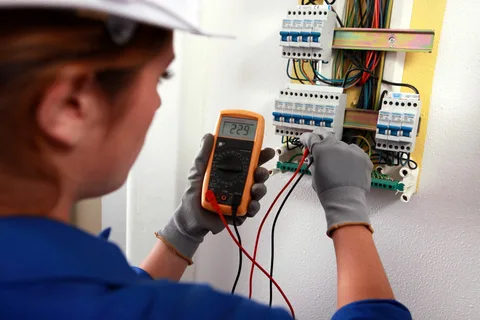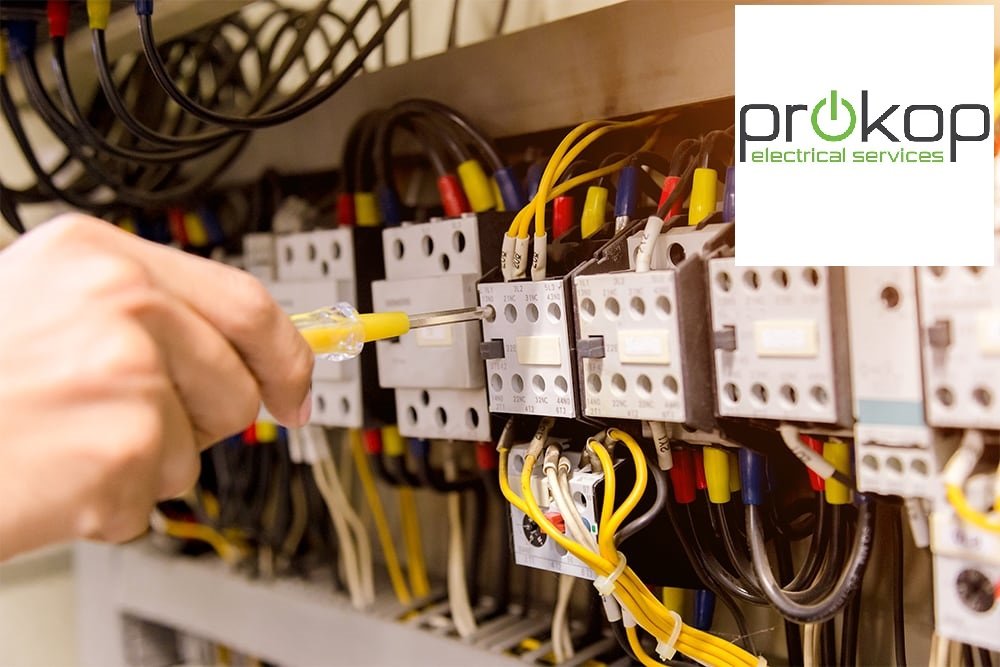Electrician Roles And Responsibilities In The Construction Industry

Overview
In the world of construction, qualified electricians are an essential part of ensuring electrical safety and the successful completion of projects. In this post, we will explore the importance of Qualified Electrician Brighton, their key responsibilities, and how they contribute to maintaining electrical safety. Let’s dive in!
The Importance of Qualified Electricians in the Construction Industry
Qualified electricians play a crucial role in ensuring electrical safety on construction sites. They are responsible for installing, maintaining, and repairing electrical systems in construction projects. Having qualified electricians reduces the risk of accidents and electrical hazards in the construction industry.
Properly trained electricians are knowledgeable about electrical codes and regulations, ensuring compliance and preventing costly mistakes. By hiring qualified electricians, construction projects can be completed efficiently and on schedule.
Key Responsibilities of Electricians on Construction Sites
- Interpret electrical blueprints and execute the electrical work accordingly.
- Installing electrical wiring, lighting fixtures, and other electrical components in buildings.
- Troubleshooting electrical issues and performing repairs to maintain functionality.
- Ensuring proper grounding, bonding, and protection of electrical systems to prevent electrocution and fires.
- Supervising apprentices and coordinating with other tradespeople on construction sites.
Ensuring Electrical Safety in Construction Projects
Electricians play a crucial role in ensuring electrical safety during construction projects.
- They inspect electrical systems for defects, wear and tear, and potential hazards.
- Electricians enforce safety measures and adhere to electrical codes and regulations.
- They use personal protective equipment and follow proper procedures to minimise the risk of accidents.
- Regular maintenance and testing of electrical systems are essential to ensure continued safety.
Understanding Electrical Codes and Regulations in the Construction Industry
Electricians must have a thorough understanding of electrical codes and regulations. They ensure that electrical systems meet the necessary safety standards and compliance.
Familiarity with the electrical code is essential for electricians in the construction industry. By complying with electrical codes, electricians prevent safety hazards and potential legal liabilities.
Regular updates and training on electrical codes help electricians stay updated and informed.
The Role of Electricians in Wiring and Installation of Electrical Systems
Electricians are responsible for wiring and installing electrical systems in construction projects. They follow electrical blueprints and specifications to ensure accurate installation. Electricians ensure proper connections, grounding, and insulation of electrical wiring.
They work with various electrical components, including switches, outlets, and circuit breakers. Through their expertise, electrician Brighton facilitates the efficient and safe operation of electrical systems.
Troubleshooting and Maintaining Electrical Systems in Construction
Electricians are skilled in troubleshooting electrical issues and diagnosing problems in construction projects.
They use specialised tools and equipment to identify and resolve electrical faults.
Regular maintenance and inspection of electrical systems help prevent breakdowns and ensure optimal functioning.
Electricians also perform repairs and replacements of faulty electrical components.
Their expertise in troubleshooting promotes the longevity and reliability of electrical systems.

Collaborating with Other Tradespeople on Construction Sites
Electricians work closely with other tradespeople, such as plumbers, carpenters, and HVAC technicians, on construction sites.
Collaboration between different trades ensures the smooth integration of electrical systems with other building components.
Effective communication and coordination among tradespeople are necessary for successful construction projects.
Electricians may need to coordinate their work with other trades to ensure timely completion.
The ability to work well with others is essential for electricians in the construction industry.
Professional Development and Continuous Learning for Electricians in Construction
Electricians should prioritise professional development and continuous learning in the construction industry. Staying updated with new technologies, techniques, and industry trends helps electricians enhance their skills.
Continual learning allows electricians to adapt to evolving electrical codes and regulations. Certifications and additional training in specialised areas can expand career opportunities for electricians.
By investing in professional development, electricians can provide better service and contribute to the success of construction projects.
Conclusion
In conclusion, qualified electrician Brighton play a vital role in the construction industry by ensuring electrical safety, adhering to codes and regulations, and efficiently installing and maintaining electrical systems. They are responsible for interpreting blueprints, troubleshooting issues, and collaborating with other tradespeople.
It is crucial for electricians to stay updated with industry trends and continuously develop their skills to provide the best service and contribute to successful construction projects. By recognising the importance of qualified electricians, the construction industry can prioritise electrical safety and efficiency.
Related Posts

Step-by-Step Guide to Outdoor Security Camera Installation

The Ultimate Guide to Hiring a Trustworthy Professional Electrician

